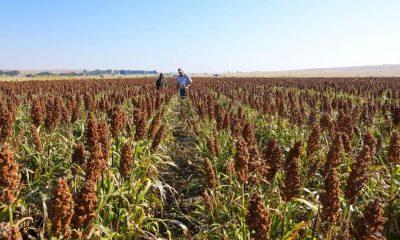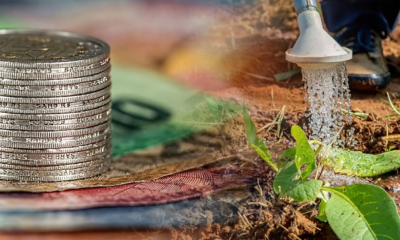Business
Fuel Price Hike Could Sow Crisis in SA Agriculture, NAMC Warns

South Africa’s farmers are bracing for a tough season as the recent fuel levy increase threatens to push production costs higher, hit rural workers harder, and raise food prices across the country.
While Finance Minister Enoch Godongwana’s 2025 budget avoided hiking VAT, the alternative, raising the general fuel levy—may come with unintended consequences, particularly for South Africa’s already pressured agricultural sector. The National Agricultural Marketing Council (NAMC) has now stepped forward with a clear warning: this policy shift risks inflating food costs and deepening rural poverty.
A New Burden on a Struggling Sector
The levy hike saw petrol and diesel levies climb by 16c and 15c per litre, respectively, bringing the total fuel levies to R4.15/ℓ for petrol and R4.02/ℓ for diesel. These adjustments are expected to generate R20 billion for the state in the 2025/26 financial year.
But for agriculture, an industry deeply dependent on energy for ploughing, irrigation, and especially transportation, the cost increase couldn’t have come at a worse time.
“Fuel makes up about 13% of variable input costs in primary production and agri-logistics,” NAMC notes. “For an industry stretched across vast rural areas and reliant on road transport, that’s significant.”
A Cascade of Economic Consequences
The increase in fuel prices comes alongside steep electricity tariff hikes, undercutting the benefits of a stronger rand and falling global oil prices that might have otherwise offered relief.
Farmers are now forced to make hard choices: scale back production, switch to less fuel-intensive methods, or pass rising costs onto consumers.
And it’s not just the big players feeling the pinch. The entire food value chain is under threat—from smallholder farms to supermarket shelves. According to the NAMC, rural workers may even struggle to afford commuting costs, disrupting labour efficiency and food delivery timelines.
“Fuel levies have a cascading effect in agriculture by raising costs for agricultural inputs, transportation, and machinery operations,” the council states.
Food Prices on the Rise
As input costs rise, so too will food prices. This is particularly alarming for low-income households already battling high inflation. Marginalised families could find it even harder to afford basic staples like maize, potatoes, or cooking oil.
Market supply may also become less predictable. If producers scale back fuel-intensive operations like grain or livestock farming, food availability could fluctuate, triggering price volatility and threatening food security.
Small Farmers May Get Left Behind
While commercial farmers can at least apply for diesel fuel rebates, smallholder and emerging farmers often lack the capacity to navigate this system. That leaves them especially vulnerable.
NAMC believes the current rebate scheme needs reform. “Government should expand and simplify access, particularly for smaller operations that struggle with bureaucracy,” the council suggests.
A Call for Smarter Solutions
To cushion the blow, NAMC has laid out a roadmap for intervention:
-
Expand diesel fuel rebate access to small-scale farmers
-
Invest in rural transport infrastructure
-
Promote renewable energy in agriculture, such as solar-powered irrigation or electric tractors
-
Fund R&D into fuel-efficient farming technologies
-
Strengthen collaboration between government, farmers, and agri-business to develop adaptive, inflation-sensitive policy
These solutions, NAMC says, could not only mitigate the current crisis but lay the foundation for a more resilient, sustainable agricultural sector.
A Sector Already Under Strain
South African agriculture has been on the front lines of climate disruption, electricity instability, and market unpredictability. The fuel levy adds to this pile of challenges. And with global food systems still shaken by supply chain aftershocks from the COVID-19 era and the war in Ukraine, any added cost pressure has ripple effects far beyond the farm.
This fuel hike may be aimed at balancing the national budget, but as NAMC warns, the cost will be paid at the dinner table.
Unless government takes swift, coordinated action, what seems like a tax tweak could blossom into a full-blown crisis for South African food security.
{Source: Engineering News}
Follow Joburg ETC on Facebook, Twitter , TikTok and Instagram
For more News in Johannesburg, visit joburgetc.com























